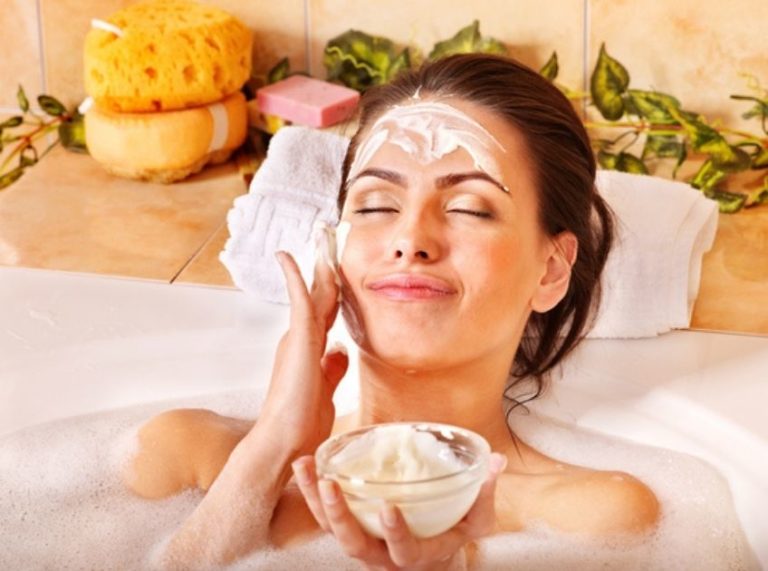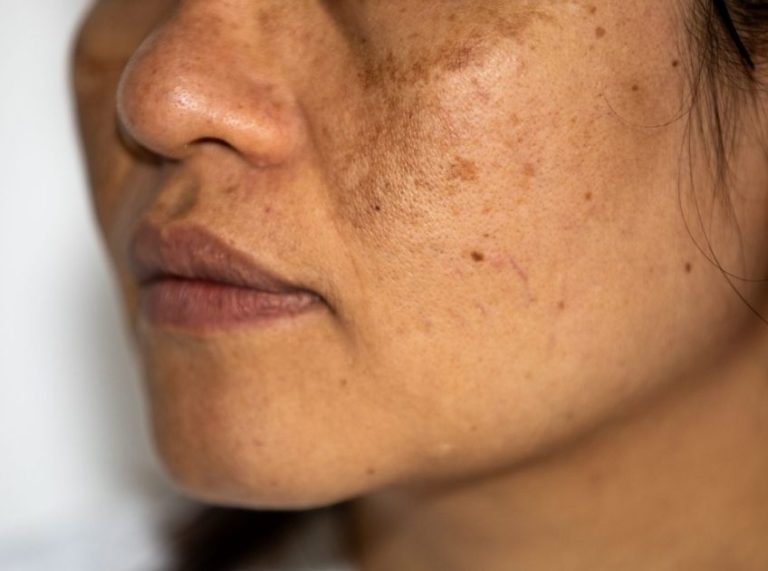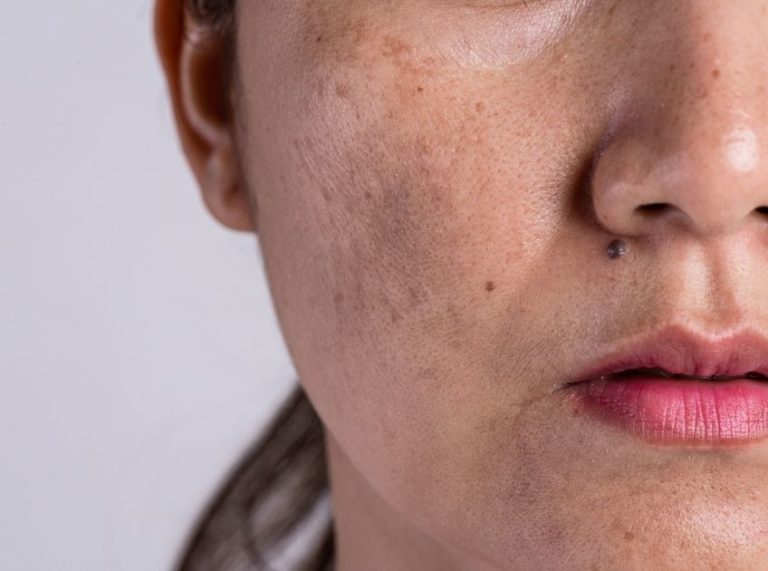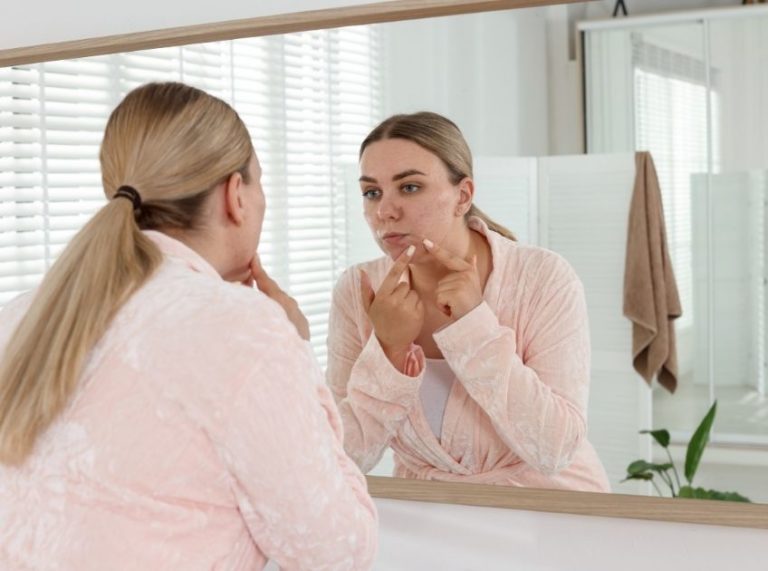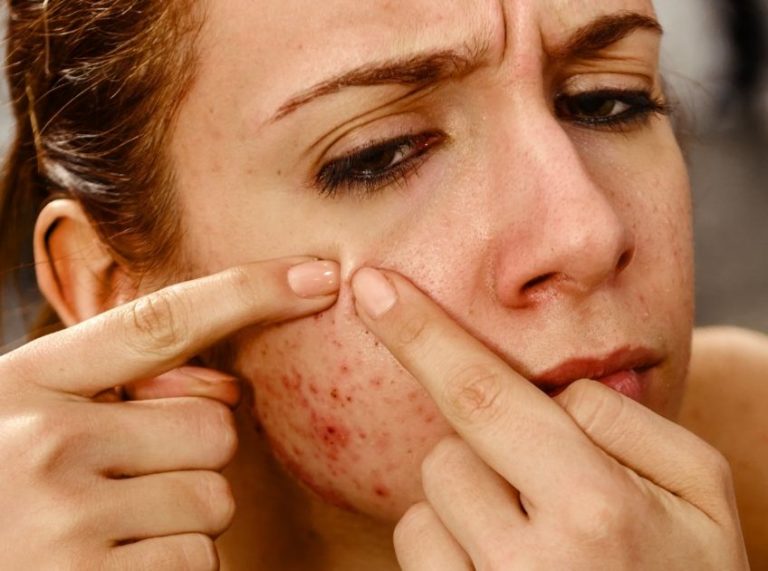
Important: This article is for informational purposes only. Please read our full disclaimer for more details.
Tired of sagging or tired-looking skin? Nature holds the answer in two powerful ingredients—aloe vera and coconut oil. These two staples can work wonders in firming your skin, restoring elasticity, and promoting a youthful glow. Here’s how to harness their power safely and effectively.
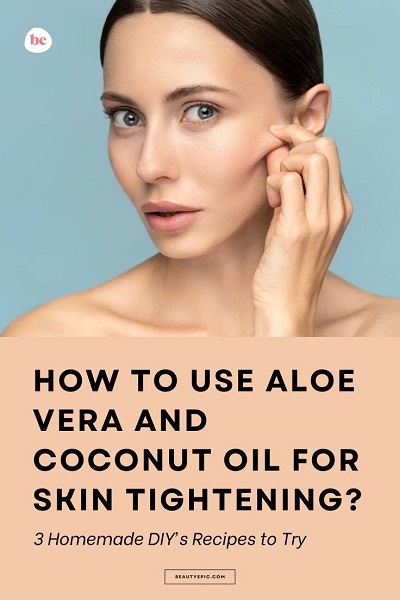
Why Aloe Vera and Coconut Oil Are a Skin-Tightening Dream
- Hydrate and nourish deeply
- Boost collagen production naturally
- Fight free radicals and inflammation
- Improve skin elasticity and tone
Together, aloe vera and coconut oil lock in moisture while gently tightening the skin barrier over time.
What Makes These Ingredients Work?
Aloe Vera
- Contains gibberellins and polysaccharides that stimulate cell regeneration
- Rich in antioxidants like vitamins A, C, and E
Coconut Oil
- Packed with medium-chain fatty acids and vitamin E
- Deeply moisturizing, it strengthens skin layers and boosts elasticity
Backed by Science: Why It Works
- A study in the Indian Journal of Dermatology noted aloe vera’s ability to increase skin collagen and improve elasticity (1).
- Coconut oil has shown wound-healing and barrier-repairing properties in research published in the International Journal of Molecular Sciences (2)(3)
- Both ingredients are natural emollients and work synergistically for firmer, healthier skin.
When to Stop Using It
- If you experience redness, itching, breakouts, or clogged pores, pause immediately.
- Discontinue use during active acne flare-ups or allergic reactions
- Perform a patch test before trying any DIY on your face
Adjust to Suit Your Skin
You can modify the ratio of aloe to coconut oil based on:
- Oily skin: Use more aloe, less coconut oil
- Dry skin: Increase coconut oil for extra hydration
- Combination skin: Keep a 1:1 balance for optimal results
Best Skin Types for This Blend
✔️ Dry skin
✔️ Mature skin
✔️ Normal to combination skin
Avoid use on extremely oily or acne-prone skin unless patch-tested.
Is It Safe to Use Aloe Vera and Coconut Oil Together?
Yes, this combo is generally safe when used in small amounts and on clean skin.
- Avoid if allergic to latex (in aloe) or coconut derivatives
- Stick to cold-pressed, organic ingredients for best results
- Apply only on intact skin, not on open wounds or infections
Top 3 DIY Recipes Using Aloe Vera and Coconut Oil for Skin Tightening
1. Firming Aloe-Coco Gel Moisturizer
A smooth, lightweight moisturizer that hydrates and gently tightens your skin—perfect for daily use. Great for dry and aging skin types.
Ingredients:
- 2 tablespoons fresh aloe vera gel (or 99% pure store-bought)
- 1 tablespoon virgin cold-pressed coconut oil
Directions to Use:
- In a clean bowl, add the aloe vera gel.
- Add the coconut oil and whip together using a small spoon or cosmetic spatula until the mixture turns creamy.
- Transfer the blend into a small glass jar with a lid.
- Keep refrigerated; it stays fresh for 5–7 days.
How to Apply:
- Wash and pat your face dry.
- Apply a pea-sized amount to your face and neck.
- Massage in upward strokes for 2 minutes.
- Use every night and rinse off in the morning with lukewarm water.
Pro Tip:
Use a jade roller after applying to enhance product absorption and skin toning.
2. Anti-Sagging Face Mask with Egg White
This powerful mask combines egg white (a natural firming agent) with aloe vera and coconut oil to visibly lift and tighten sagging skin.
Ingredients:
- 1 egg white (from a fresh egg)
- 1 tablespoon aloe vera gel
- 1 teaspoon virgin coconut oil
Directions to Use:
- Separate the egg white into a bowl.
- Add aloe vera gel and coconut oil, then whisk until slightly frothy.
- Use a clean cosmetic brush to apply the mixture evenly.
How to Apply:
- Clean your face and pat dry.
- Apply the mask in upward strokes, avoiding the eyes and lips.
- Let it dry completely (about 15–20 minutes).
- Rinse off with lukewarm water and pat the skin dry.
- Use 1–2 times a week.
Pro Tip:
Use immediately after mixing. Do not store this mask due to the egg content.
3. Skin-Tightening Facial Massage Oil
This DIY is ideal for boosting circulation, lifting skin naturally, and softening fine lines when used during facial massage once or twice a week.
Ingredients:
- 1 tablespoon virgin coconut oil
- 1 tablespoon aloe vera juice (or gel, thinned with a few drops of water)
- 2 drops frankincense essential oil (optional but excellent for anti-aging)
Directions to Use:
- Mix all ingredients in a small bowl or palm.
- Rub palms together to warm the oil blend.
- Ensure the consistency is fluid enough for a smooth massage.
How to Apply:
- Use on freshly cleansed, slightly damp skin.
- Start with cheeks and forehead, massaging in small upward circles.
- Focus on the jawline and neck using lifting strokes.
- Massage for 5–7 minutes, then wipe off excess with a warm cloth.
Pro Tip:
For best results, follow with a splash of cold water to close the pores after wiping off the oil.
Frequently Asked Questions (FAQ’S)
Q1: How long does it take to see skin-tightening results?
A. With regular use 2–3 times a week, results may appear in 3–4 weeks.
Q2: Can I use store-bought aloe vera gel?
A. Yes, but ensure it’s 100% pure with no added alcohol or fragrances.
Q3: Should I use it in the morning or night?
A. Nighttime is ideal, especially for leave-on recipes, allowing your skin to repair and absorb nutrients fully.
Final Thoughts
Aloe vera and coconut oil offer a natural, affordable, and effective solution for skin tightening. These DIY recipes are simple to make, customizable, and safe for most skin types. Add them to your skincare routine consistently, and you may notice firmer, glowing skin without the need for harsh chemicals or expensive treatments.

